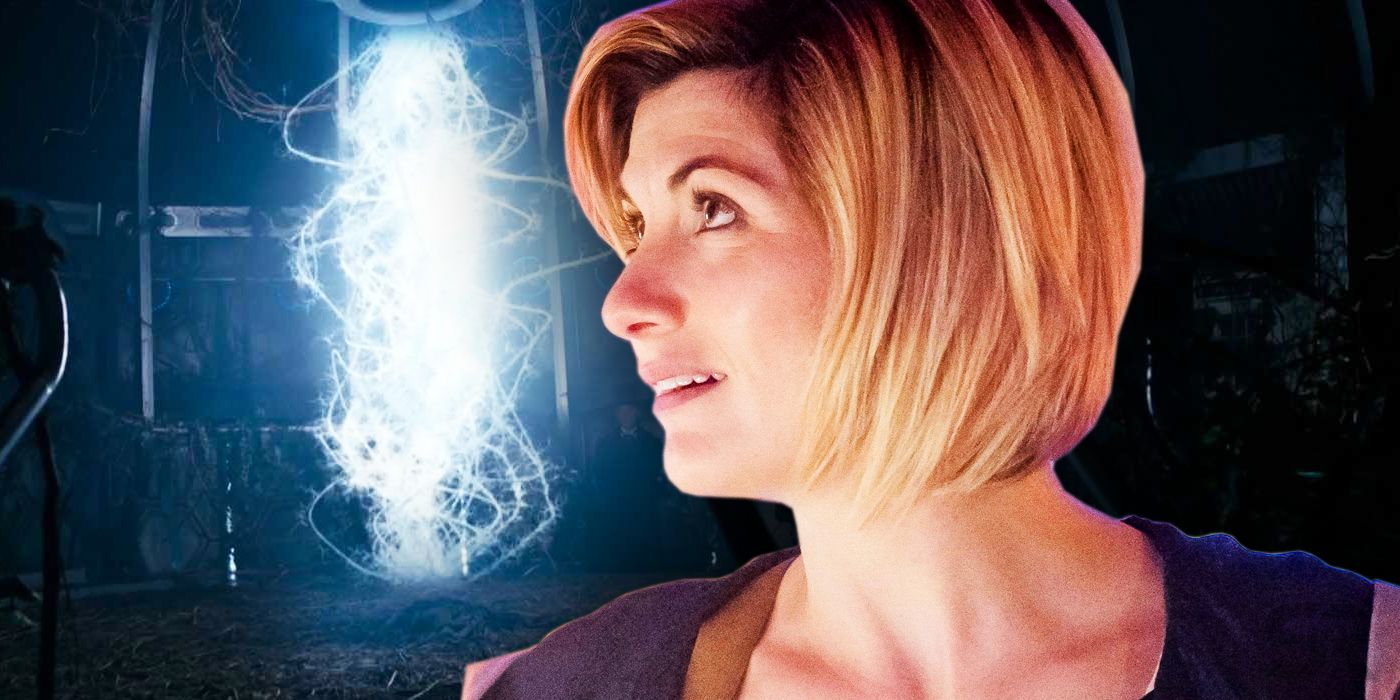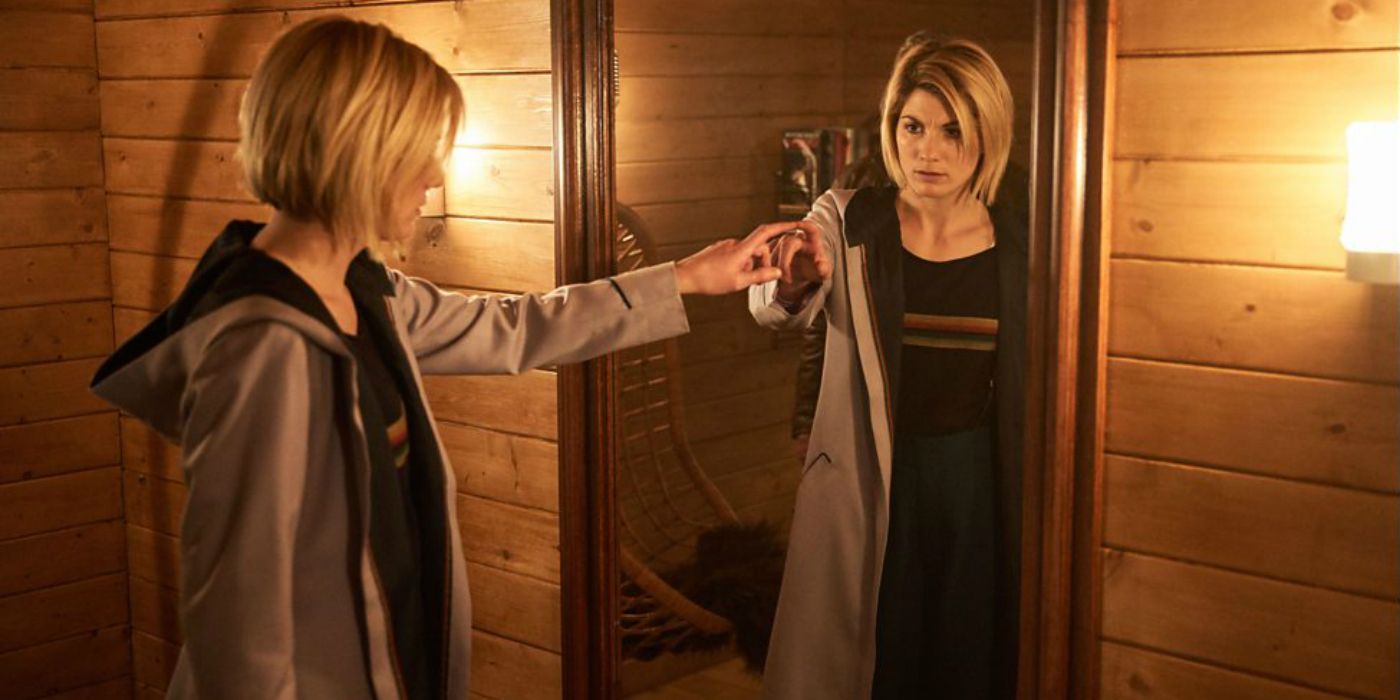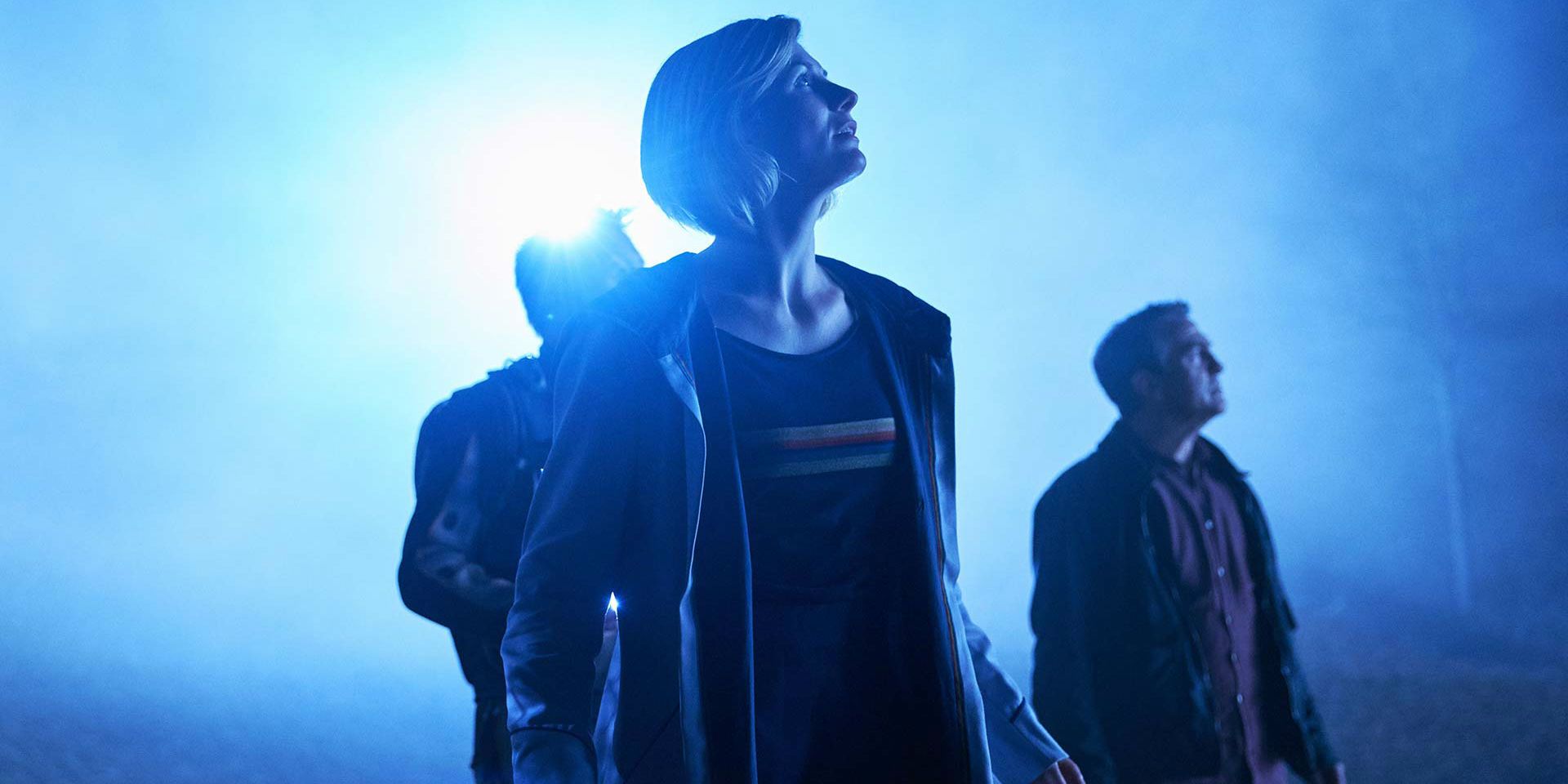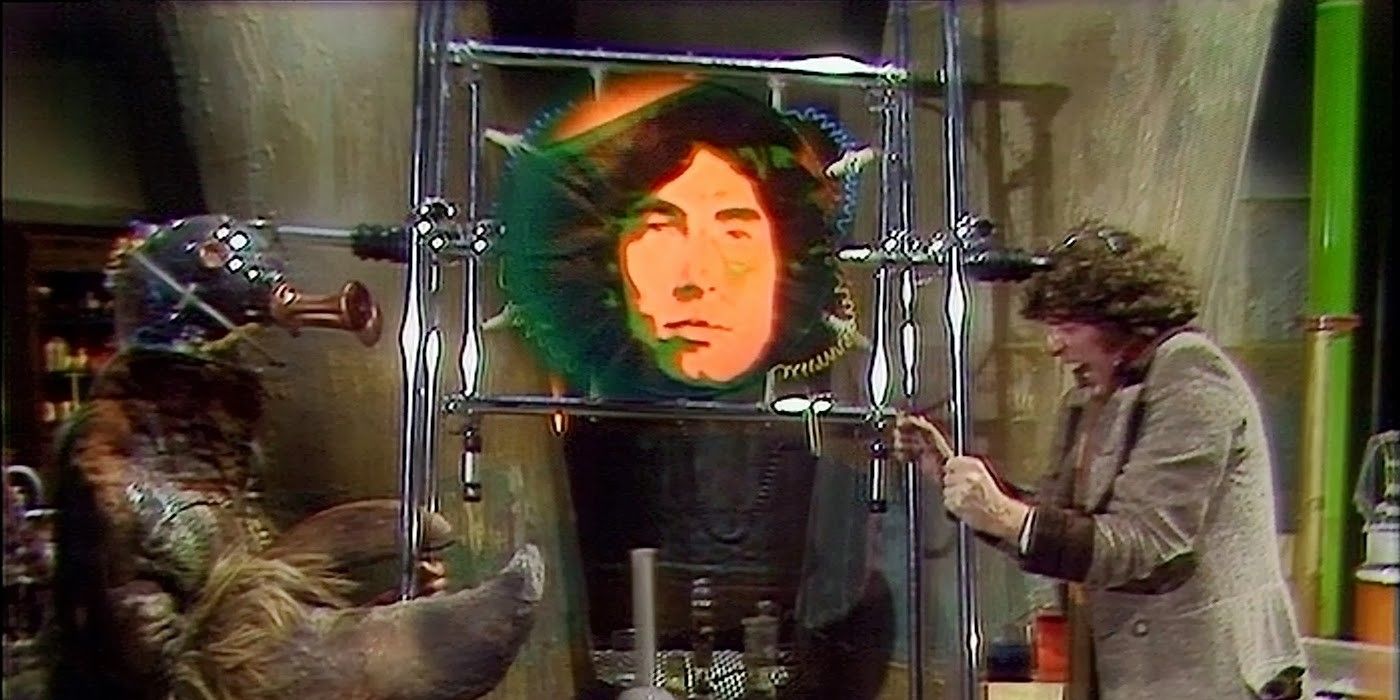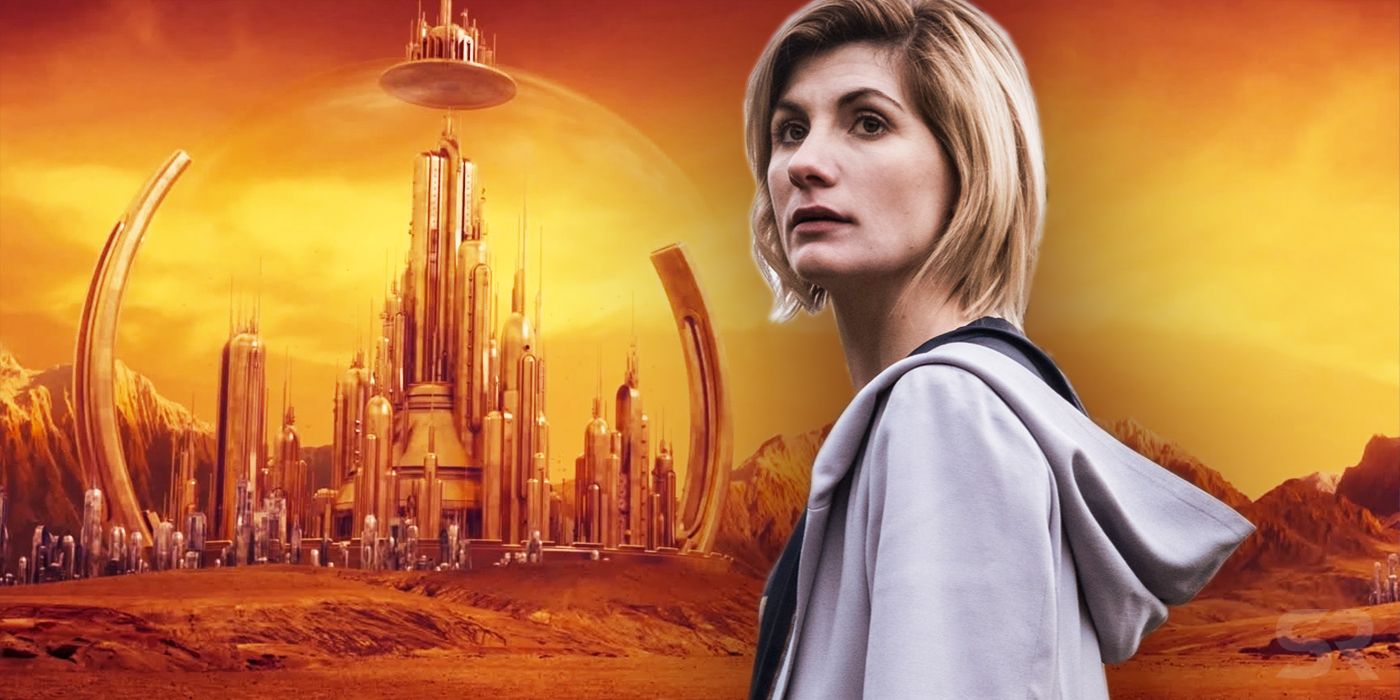Here are all the reveals from Doctor Who season 11 about the Doctor's background and family history. Without doubt, a large part of the Doctor's enduring appeal comes from the permanent aura of mystery surrounding the character. The past 50 years' worth of episodes may have revealed the Doctor's planet of origin and motivation for leaving, as well as some salient details regarding the history and science of the Time Lords themselves, but even in 2018 precious little is known about the Doctor's pre-TARDIS days on Gallifrey.
Fans know that the Doctor had at least one grandchild, Susan, and by extension must also have had at least one child. The Doctor attended a Time Lord Academy and received some degree of official tutelage in the ways of timeline fiddling, while also striking up a friendship and rivalry with the person who would later become known as the Master. While Susan is the only blood relative of the Doctor's to officially appear on screen thus far, a mystery female Time Lord in "The End of Time" was confirmed by former showrunner Russell T. Davies to be the Doctor's mother, although this was never mentioned explicitly on-screen.
Related: Doctor Who Highlights A Difference Between Jodie Whittaker and David Tennant
The wider media within the Doctor Who franchise contains plenty of material relating to the Doctor's past and family that include being born via loom, having a brother called Braxiatel and traveling with Susan's son, the Doctor's own great-grandchild. While these stories can't necessarily be considered part of the show's official canon, they do at least prove that fans are hungry for information about the Doctor's background.
The problem with trying to piece together the Doctor's history is that many of the offhand comments and one-liners that reveal new details contradict things stated previously. The Doctor is infamously inaccurate when it comes to keeping track of age and the Eighth Doctor even mentioned having a human mother, although this notion seems to have been quashed from official canon. Evidently, the Doctor's backstory is partially subject to the whims and plans of the many different writers who have worked on the show. While the background of the Doctor is still very far from clear, season 11 has been heavy with references to the Doctor's relatives and time on Gallifrey. Here are the details regarding the Doctor's past and family life that have been revealed in the most recent season of Doctor Who.
- This Page: The Doctor's Grandmother's & The Timeless Child
- Page 2: The Doctor's Previous Regenerations & Sisters
The Doctor Has Seven Grandmothers?!
One of the most overt references the Doctor has made to her family this season came during "It Takes You Away", a highly unusual story and the most Douglas Adams-esque episode that Douglas Adams never wrote. Here, Jodie Whittaker's Doctor revealed that, as a child, she was told bedtime stories by Granny Five, her favorite out of seven grandmothers. While the Doctor offers no explanation or context to this revelation, there are several plausible interpretations.
The first is that, since the mechanics of Time Lord reproduction have yet to be broached, Gallifreyans can somehow have more than two biological parents and therefore more than the two biological grandmothers possessed by us mere humans. Alternatively, since the natives of Gallifrey has such long lifespans even within a single regeneration, perhaps many of these seven grandmothers were relatives to the Doctor by marriage, rather than blood. Divorce rates must be high when everyone can live for hundreds of years, after all.
Related: Doctor Who Just Introduced Time Lord Religion
The final, and perhaps the simplest, explanation is that by "seven grandmothers" the Doctor is actually referring to the various different regenerations of just one or two grandmothers. In a similar way to how fans would call Peter Davison "The Fifth Doctor", the Doctor might refer to her grandmother's fifth iteration as "Granny Five". It's unlikely that viewers will ever find out the truth behind the Doctor's seven grandmothers, but this scene does at least highlight a loving and nurturing relationship between the Doctor and a grandparent that has never previously been revealed.
The Timeless Child
Season 11's second offering, "The Ghost Monument", set up what seems to be the first long-running arc of Jodie Whittaker's tenure: the mystery of the Timeless Child. This episode saw the Doctor and her companions come face-to-face with the Remnants, deadly flying bandages that could read memories and prey on a person's worst fears. In the case of the Doctor, these fears apparently involve a figure from the Doctor's past called the Timeless Child.
Although nothing has been said of this enigmatic individual since then, it's perhaps reasonable to assume that the matter somehow relates back to the Time Lords and, as such, must have occurred prior to the First Doctor leaving Gallifrey, with the incident now nothing more than a dark secret in the Doctor's past - hence why it was picked up on by the Remnants.
Due to the "Timeless Child" moniker and the Doctor's angry reaction to hearing the name, many fans have theorized that this figure could be a family member of the Doctor's, perhaps an untalented and abandoned sibling or a child presumed dead. Such a reveal would make perfect sense, as the Remnants claimed that the Timeless Child reached "further back" into history and references to the Doctor's family all being dead have been present as far back as the show's black and white years. The Doctor may believe that all their relatives are currently deceased but the character doesn't have a great track record when it comes to assuming people are no longer alive (see the Master, Davros, the Time Lords, every single Dalek...).
Related: Doctor Who's Matt Smith & David Tennant References Were Smarter Than You Realized
Page 2 of 2: The Doctor's Previous Regenerations & Sisters
The Doctor Was Possibly Female Before
In season 11's "Arachnids in the U.K.", the Doctor claims to have been a "Sister at an aqua hospital" and, assuming this wasn't another of the Third Doctor's cunning disguises, the line nods towards the existence of a former female regeneration. While this line alone isn't exactly conclusive (if you can have an inter-dimensional sentient universe taking the form of a frog, a hospital can certainly have a male Sister), Peter Capaldi's Doctor also made several references to potentially being a woman in a past life and thus the evidence begins to stack up.
As mentioned previously, the Doctor is often guilty of "rounding down" when it comes to age and has also been unreliable when discussing how many regenerations have taken place. While the gifting of a new regeneration cycle to Matt Smith's incarnation seemed to confirm that the First Doctor was indeed the character's first body, there have been occasions where it was hinted that this might not be the case. For example, Fourth Doctor story "The Brain of Morbius" features a scene where the Doctor mentally flashes back through past versions of himself and figures are shown preceding the original William Hartnell incarnation. The episode's producer, Philip Hinchcliffe, later confirmed that this scene was intended to imply that Hartnell was not the first version of the Doctor. As such, it's possible that there could have existed a previous female Doctor before the show began.
All things considered, however, there is far more evidence to claim that the First Doctor was the original body of the character than there is to the contrary. The Doctor is famous for telling half-truths, misremembering and being intentionally obtuse, and Time Lords are very fluid when it comes to gender. Any comments from the Doctor that imply Thirteen isn't the first female regeneration are almost certainly false for one reason or another. Still, the intricacy of Doctor Who history makes the idea impossible to rule out altogether.
Read More: Doctor Who Hints The Doctor Was Female Before
Sisters
"Arachnids in the U.K." went even further down the rabbit hole of the Doctor's past with the fleeting line "Sisters. I used to have sisters." While the Doctor has previously referenced both children and parents, this moment represents perhaps the first canon confirmation of siblings.
It's perhaps not hugely shocking to learn that the Doctor wasn't an only child, but this line does give rise to a few pertinent questions. For instance, if the Doctor is known to be endlessly kind, loyal to friends and willing to risk anything to save a stranger's life; why is there seemingly no strong bond or connection between the Doctor and her siblings? The Thirteenth Doctor claims all her family long dead but if this is the case, how did it happen and did the Doctor try to save them, having broken all the laws of time and space to rescue companions in the past?
Perhaps some answers will come as the Timeless Child mystery begins to unravel, or maybe the issue will forever be nothing more than a slightly irritating inconsistency in the Doctor's character created by a throwaway line of dialogue.
-
Fortunately, significant developments may not be too far away. Virtually every episode of season 11 has featured family as a central theme, whether it be the Cicero siblings in "The Tsuranga Conundrum", Becka and Willa in "The Witchfinders" or the pendant from Dan's daughter in "Kerblam!" that the TARDIS crew returned after the episode. Combine this with the tease of the Timeless Child and it certainly feels like Doctor Who season 11 could be setting up to feature the Doctor's family in a prominent and major way.
Next: Why Doctor Who Has Completely Divided Fans This Season
Doctor Who season 11 concludes with "The Battle of Ranskoor Av Kolos" December 9th on BBC.

